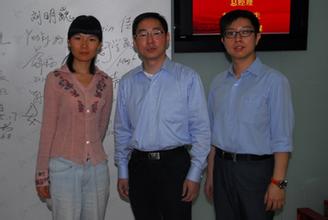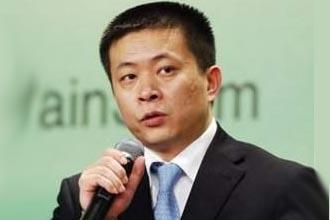纽约时报今天的头版头条耐人寻味:又一个黄皮肤黑头发的李文和?
华裔美国水文专家蒙冤,被控为中国做间谍
纽约时报 NICOLE PERLROTH2015年05月11日
Maddie McGarvey for The New York Times
美国联邦政府的水文专家陈霞芬去年被控从事间谍活动被逮捕。
2014年10月20日,周一,雪莉·陈(SherryChen,音)像往常一样,开车前往位于俄亥俄州威明顿市的美国国家气象局(National WeatherService)工作,她在那里主要负责预测俄亥俄河沿岸的洪水威胁。几天前她刚从中国回来,时差还没倒过来。但她表示在走向办公桌的时候,没有觉得跟平时有什么不同。然后,她的上司叫她过去。
一走入上司的办公室,一扇后门打开了,六名联邦调查局(FBI)特工走进来。
相关文章
这些特工指控陈盗取密码,下载与美国水坝相关的信息,并在与中国高层官员会面一事上撒谎。她是一名水文学家,出生在中国,中文名陈霞芬(音),后来入籍成为美国公民。
作为一名已归化的中西部人,59岁的陈霞芬曾因为自己的政府服务工作而获得嘉奖,但现在她被怀疑是中国间谍。她被逮捕,戴着手铐从同事身旁走过,而后被送往40英里(约合64公里)以外的代顿的一家联邦法院,她在法院得知自己面临25年的监禁和100万美元(约合621万元人民币)的罚款。
陈霞芬的生活从此天翻地覆。她被停薪停职,在中国的家人需要凑钱支付辩护费用。她的朋友和同事都表示不敢去看她。电视台的车停在她位于威明顿郊区的住所外,等着将聚光灯投向这个光天化日下潜伏的外国间谍。威明顿市有1.25万名居民。
“我睡不着,”陈霞芬最近接受采访时说。“吃不下。几天下来什么也没干,只是哭。”
五个月后,这种折磨突然结束了。今年3月,也就是在她本该接受审判的一周之前,检方在没有给出理由的情况下,撤消了所有针对陈霞芬的指控。
“我们在行使起诉裁量权,” 俄亥俄州南区联邦检察官办公室发言人珍妮弗·桑顿(JenniferThornton)说。她还表示,司法部去年提交了400份起诉书和“刑事检举书”——涉及认罪协议的诉讼,驳回了13份起诉书,其中包括针对陈霞芬的诉讼书。联邦检察官不会就调查作出评论,但毫无疑问的是,执法部门面临新压力,要对一切可能跟窃取贸易秘密有关的线索进行追查。
在过去几年中,政府官员加强警告,称中国黑客和被收买的内部人士正在盗取美国的商业秘密及其他机密信息。如今的警世通言是,这个国家只有两种公司:一种是遭到中国黑客攻击的公司,另一种是不知道自己遭到中国黑客攻击的公司。
2013年,贝拉克·奥巴马总统宣布实行新的反击策略。主要举措就是加大调查及起诉力度,司法部根据《经济间谍法》(EconomicEspionageAct)提出的诉讼数量比一年前增加了逾30%。在2014年的前九个月又增加了33%。公开文件显示,尤其是在2013年以来提出的经济间谍起诉中,有超过一半的案件都与中国有关。
在这样的背景下,检方盯上了陈霞芬。
“他们偶然发现一些华裔,以及一点点证明他们可能试图为中国政府谋利的证据,但这明显带有红色恐慌和种族主义色彩,”专门处理计算机犯罪及工业间谍案件的前联邦检察官彼得·J·托伦(PeterJ. Toren)说。他现在是华盛顿Weisbrod Matteis &Copley律师事务所的合伙人,出版了《知识产权与计算机犯罪》(Intellectual Property and ComputerCrimes)一书。
通过对陈霞芬及其前同事的采访,以及查阅法庭文件——其中包括陈霞芬一年的工作及个人邮件——可以发现,检方在寻找她从事间谍工作的证据,但没有找到,然后选定了较轻的罪名,但最终撤诉。
“政府以为发现了个大案,” 审核了该案件的前司法部间谍及计算机犯罪案件检察官马克·D·拉施(Mark D.Rasch)说。“问题是事实并不符合法律的要求。”
陈霞芬生于北京,从小就显露出工科方面的潜质。一个叔辈亲戚鼓励她在建筑设计领域发展,但她说自己对水和空气的抽象性更感兴趣。“你没法用自己的双眼看到它们,”她说,人显得兴奋起来。“比那复杂多了。我觉得很迷人。”
她在北京取得了水文学的高等学位,后来成家并移居美国,在内布拉斯加大学(University ofNebraska)攻读水资源和气候学方面的学位。她在1997年成为美国公民。在为密苏里州工作了11年后,她于2007年接受了俄亥俄州国家气象局的这份工作。
在威明顿,她和身为电子专家的丈夫住进了一栋牧场风格的房子,离办公室不远,两人开始过上舒适的日常生活。
问她的家或爱好,她可能只会蹦出一两个词。但如果问水流或俄亥俄河,她会说上几个小时。从匹兹堡到与密西西比河交汇的地方,即伊利诺伊州的开罗,俄亥俄河流经900多英里(约合1450公里),俄亥俄盆地生活着大约2500万人。俄亥俄河沿途流经美国陆军工程兵团(U.S.Army Corps ofEngineers)管理的多座水闸和大坝。陈霞芬发明了一个预测俄亥俄河及其支流洪水的模型。该模型要求连续不断地搜集有关水位和降雨量的数据,以及水闸和水坝管理人员对水流做出了怎样的反应。
陈霞芬在为自己的预测工作搜集数据方面出了名的执着。因为八年里反复点击鼠标,她的右手得了腕管综合征。2007年将陈霞芬招进国家气象局的托马斯·亚当斯(ThomasAdams)说,对数据的痴迷让她成了这份工作的最佳人选。
亚当斯说“雪莉过去和现在都致力于在细节方面准确无误,这一点非常重要,”他解释说,一英寸(约合2.5厘米)的水可能决定了堤坝是否能抵挡住洪流。
陈霞芬每年会回北京看望父母,这也是她麻烦的源头。2012年回北京期间,一个亲戚说,他的未来岳父因为一条水管,跟地方政府陷入了一场款项纠纷。
那个亲戚知道,陈霞芬以前读水文学时的同学矫勇,已经是中国水利部的副部长了。中国的大量水利基础设施都归该部掌管。按照陈霞芬的说法,那个亲戚请她联系一下矫勇,希望他能帮助自己未来的岳父。陈霞芬说,她当时不愿这么做,因为她和矫勇多年没见了,但最后还是联系了对方。
矫勇的秘书安排了一次15分钟的聊天,地点在矫勇位于北京市中心的办公室。矫勇表示他会尽力调解。随着交谈的进行,矫勇还提到自己正在为修缮中国陈旧的水库系统拨款,并且好奇在美国会给这种项目提供多少钱。
陈霞芬说,那个问题是随口问的,但她却因为不知道答案而感到尴尬。
回到俄亥俄后,她开始了解更多信息。最后,她给矫勇发了一封电子邮件,里面有一些网站的链接,但没有和他的问题直接相关的内容。
她还向时任工程兵团水务管理部负责人黛博拉·H·李(Deborah H. Lee)求助。多年来,她曾在多个项目上和李共事。
法庭文件中的电子邮件副本显示,李让陈霞芬上水务部网站去看,并对陈霞芬说,如果她的老同学还有其他问题,可以直接联系她。于是,陈霞芬给矫勇发了第二封,也是最后一封电子邮件,告诉他如果还有任何问题,可以直接给李打电话。
在与陈霞芬互通电子邮件后不久,李便将她们之间的通信汇报给了国家气象局的上级机构商务部的安全人员。“我担心有人在代表外国利益全面收集美国陆军工程兵团水务控制手册,”李写道。
黛博拉·李不愿就发送邮件的动机置评。去年9月,她离开陆军工程兵团,前往国家海洋和大气管理局(National OceanicAtmosphericAdministration)工作。该局的一位女发言人说,李和管理局都不愿意就他们所谓的“人事事务”发表评论。
如果说矫勇想要招募陈霞芬,那么他也太不上心了。他过了一周才回复陈霞芬的第一封邮件。“嗨,霞芬:你的邮件我收到了,”他用英语写道。“谢谢你转发给我的信息。我会仔细看看的。”他的第二封邮件更简练:“非常感谢。”
调查人员取得了搜查陈霞芬的工作邮件及私人邮件的搜查令。搜查结果显示,他们之间的通信仅限于这种程度。
为了回答矫勇的问题,陈霞芬查询了国家水坝数据库(National Inventory ofDams)。政府工作人员和申请了登录凭证的公众,都可以进入这个由陆军工程兵团运营的数据库。网站上的一小部分数据——70个字段中的6个——只对政府工作人员开放。
作为政府雇员,陈霞芬曾有访问整个数据库的权限。但她当时没有密码,在陈霞芬最后一次使用该数据库之后,政府于2009年开始要求登录者提供密码。于是,她向坐在临近的工位的雷·戴维斯(RayDavis)求助。戴维斯之前已经把密码和登录说明告知了整个办公室,此时又通过电子邮件把密码告诉了她。
陈霞芬并没有找到太多可以提供给矫勇的有用信息,但确实下载了一些关于俄亥俄州水坝的数据——她认为这些数据可能与她的预测模型有关。对于矫勇,陈霞芬在写给他的第二封邮件中附上了这个数据库的链接,并指出“这个数据库只对政府用户开放,非政府用户无法从这个网站下载任何数据。”她告诉矫勇,如果他有任何问题,或者需要任何信息,可以联系李——这时她刚刚举报陈霞芬有间谍嫌疑。
后来,当戴维斯接受商务部官员讯问时,他说自己不记得曾把密码提供给陈霞芬。陈霞芬也说不记得收到过密码。根据二人接受约谈的报告,他们都不认为自己的行为有何不妥。
不过,密码的问题还将继续困扰她。在黛博拉·李举报她将近一年之后,商务部的两名特工来到她的办公室。他们针对前述的密码和她与那名中国官员15分钟的会面,审问了她七个小时。
当被问到最后一次与矫勇见面是什么时候时,她回答道,“是我上次探望父母的时候,应该是2011年,2011年5月。”
2014年9月,当陈霞芬和丈夫准备从新泽西州纽瓦克乘坐美联航(UnitedAirlines)的一架班机飞往北京时,他们在登机过程中被拦下。他们的行李被拿走,并遭到搜查。陈霞芬说,他们最后还是获准登机,那时飞机已经耽搁了一个多小时。
去年10月,在那次出行回国后,陈霞芬遭到逮捕。她在代顿的法庭受到了四项重罪指控,罪名包括她从一个保密的政府数据库——国家水坝数据库——非法下载关于“关键国家基础设施”的数据,以及做出虚假陈述。
这里的虚假陈述指的是她曾告诉特工,自己最后一次见到矫勇是在2011年,而非2012年。随后,她面临的指控又增加另外四项。
她于同一天获释,并被迫处于无薪行政离职状态。
陈霞芬的代理律师,华盛顿律所Arent Fox合伙人彼得·R·蔡登博格(Peter R.Zeidenberg)称,他认为政府追究陈霞芬使用同事密码的责任,却不追究把密码给她——而且给了整个办公室——的那名同事的责任,这个事实很能说明问题。(戴维斯及目前在国家气象局任职的其他任何人,都不愿意为此文发表评论。)
她的前同事亚当斯称,他认为陈霞芬的中国背景产生了影响。“如果是你我,或者其他欧洲后裔借用了别人的密码,”他说,“他们就会说,‘下不为例’。”他还说:“这就是政府对她作为一名联邦公务员的辛勤工作和奉献所表示的感激。太可耻了。”
离审判开始还有一周时,蔡登博格要求会见俄亥俄州南区的两名联邦检察官,卡特·M·斯图尔特(Carter M.Stewart)和马克·T·德亚历山德罗(Mark T. D’Alessandro)。
蔡登博格说,他问道:“如果她是间谍,为什么要在从中国回来之后,告诉同事‘我在中国见了这个人,他想知道这些信息’?她为什么要告诉中国的那个人,‘这是我老板的电话号码’?为什么她要通过电子邮件获取密码?你会这么做吗?”
蔡登博格说检察官听进去了。3月10日,在会谈次日,他们撤销了这些指控。
“感谢上帝,”蔡登博格还说。
陈霞芬的福利和工资都已恢复,但她还要等待,看商务部是否会允许她回去工作。处理陈霞芬案件的商务部律师莎拉·瑞安(SaraRyan)称,她不愿谈论此事。商务部代表也没有答复置评请求。
当陈霞芬的前同事亚当斯被问到,他是否认为陈霞芬应该回到原来的工作岗位时,他说他很矛盾。“我希望她能尽快讨回自己的工作,”他说。“但是从另一方面考虑,我又希望她再也别回去了。她受到那样的对待,应该小心政府还没死心。”
本文内容版权归纽约时报公司所有,任何单位及个人未经许可,不得擅自转载或翻译。Accused of Spying for China, Until She Wasn’t
By NICOLE PERLROTH May 11,2015
Maddie McGarvey for The New York Times
Sherry Chen, a hydrologist for the federal government in Ohio,was arrested last October and accused of economic espionage.Afterward, she said, “I did nothing but cry for days.”
On Monday, Oct. 20, 2014, Sherry Chen drove, as usual, to heroffice at the National Weather Service in Wilmington, Ohio, whereshe forecast flood threats along the Ohio River. She was a bitjet-lagged, having returned a few days earlier from a visit toChina. But as she headed to her desk, she says, she had no reasonto think it was anything other than an ordinary day. Then her bosssummoned her.
Once inside his office, a back door opened and in walked sixagents from the FBI.
相关文章
The agents accused Chen, a hydrologist born in China and now anaturalized U.S. citizen, of using a stolen password to downloadinformation about the nation's dams and of lying about meeting witha high-ranking Chinese official.
Chen, 59, an adoptive Midwesterner who had received awards forher government service, was now suspected of being a Chinese spy.She was arrested and led in handcuffs past her co-workers to afederal courthouse 40 miles away in Dayton, where she was told shefaced 25 years in prison and $1 million in fines.
Her life went into a tailspin. She was suspended without payfrom her job, and her family in China had to scramble for money topay for her legal defense. Friends and co-workers said they wereafraid to visit. Television news trucks parked outside her house,waiting to spot a foreign spy hiding in plain sight in suburbanWilmington, population 12,500.
“I could not sleep,” Chen said in a recent interview. “I couldnot eat. I did nothing but cry for days.”
Then, five months later, the ordeal abruptly ended. In March,just a week before she was scheduled to go on trial, prosecutorsdropped all charges against Chen without explanation.
“We are exercising our prosecutorial discretion,” said JenniferThornton, the spokeswoman for the U.S. attorney for the SouthernDistrict of Ohio. She added that last year the Justice Departmentfiled 400 indictments and “criminal informations” — charges filedin connection with plea agreements — and dismissed 13 of them,including Chen's. The U.S. attorney would not comment on theinvestigation, but there is little question that law enforcement isfacing new pressure to pursue any lead that could be related totrade-secret theft.
For the past few years, government officials have noted withgrowing alarm that Chinese hackers and paid insiders were spiritingtrade secrets and other confidential information out of the UnitedStates. The mantra, these days, is that there are only two types ofcompanies left in this country: those that have been hacked byChina and those that do not know they have been hacked byChina.
In 2013, President Barack Obama announced a new strategy tofight back. The cornerstone was more aggressive investigations andprosecutions, and Justice Department prosecutions under theEconomic Espionage Act jumped more than 30 percent from the yearbefore. During the first nine months of 2014, the total increasedan additional 33 percent. Notably, more than half of the economicespionage indictments since 2013 have had a China connection,public documents show.
It was in this climate that prosecutors zeroed in on Chen.
“They came across a person of Chinese descent and a little bitof evidence that they may have been trying to benefit the Chinesegovernment, but it's clear there was a little bit of Red Scare andracism involved,” said Peter J. Toren, a former federal prosecutorwho specialized in computer crimes and industrial espionage. He isnow a partner at Weisbrod Matteis & Copley in Washington andthe author of “Intellectual Property and Computer Crimes.”
Interviews with Chen and her former colleagues and a review ofcourt filings, which include a year's worth of Chen's work andpersonal emails, suggest that prosecutors hunted for evidence ofespionage, failed and settled on lesser charges that theyeventually dropped.
“The government thought they had struck gold with this case,”said Mark D. Rasch, a former Justice Department espionage andcomputer-crimes prosecutor who reviewed the case. “The problem wasthe facts didn't quite meet the law here.”
Chen, whose given name is Xiafen, was born in Beijing. From anearly age, she was an engineering type. An uncle encouraged her topursue a career in building design, but she says she was moreinterested in the abstract nature of water and air. “You can't seethem with your own two eyes,” she said, growing animated. “It's somuch more complex than that. I found it fascinating.”
She earned advanced degrees in hydrology in Beijing, married andmoved to the United States to pursue a degree in water resourcesand climatology at the University of Nebraska. She became a U.S.citizen in 1997. After 11 years working for the state of Missouri,she took the job at the weather service in Ohio in 2007.
In Wilmington, she and her husband, an electronics specialist,moved into a ranch-style house a short drive from her office,settling into a life of comfortable routine.
Ask Chen about her home or hobbies and you may get a word ortwo. Ask her about water flow or the Ohio River and she will talkfor hours. Some 25 million people live along the Ohio River basin,which runs more than 900 miles from Pittsburgh to Cairo, Illinois,where it joins the Mississippi River. Along the way, it flowsthrough locks and dams operated by the U.S. Army Corps ofEngineers. Chen developed a forecasting model for predicting floodsalong the Ohio and its tributaries. The model involves constantdata-gathering about water levels and rainfall, as well as how damand lock operators respond to water flow.
Chen was known to be tenacious in her pursuit of data for herpredictions. She developed carpal-tunnel syndrome in her right handfrom eight years of repetitive mouse clicks. Thomas Adams, whohired Chen at the National Weather Service in 2007, said herfascination with data made her perfect for the job.
“Sherry is and was dedicated to getting the details right — andthat matters significantly,” Adams said, noting that one inch ofwater could make the difference between a levee holding orfailing.
Chen would return to Beijing every year to visit her parents,which is how her troubles began. During her 2012 trip, a nephewsaid that his future father-in-law was in a payment dispute withprovincial officials over a water pipeline.
The nephew knew that one of Chen's former hydrology classmates,Jiao Yong, had become vice minister of China's Ministry of WaterResources, which oversees much of China's water infrastructure. AsChen tells it, her nephew asked her to reach out to Jiao, hoping hemight be able to help his future wife's father. Chen said she wasreluctant to do so since she had not seen Jiao in many years butultimately contacted him.
Jiao's secretary set up a 15-minute chat in his office indowntown Beijing, and Jiao said he would try to intercede. As theirconversation wound down, he also mentioned that he was in theprocess of funding repairs for China's aging reservoir systems andwas curious how such projects were funded in the United States.
It was a casual question, Chen said, but she was embarrassed notto know the answer.
When she returned to Ohio, she set out to learn more. Sheeventually sent Jiao an email with links to websites but nothingdirectly relevant to his question.
She also asked for help from Deborah H. Lee, then the chief ofthe water management division at the Army Corps of Engineers, withwhom Chen had worked on projects over the years.
Copies of emails included in court documents show that Leedirected Chen to her agency's website and told her that if herformer classmate had further questions, he could contact herdirectly. Chen then sent a second, final email to Jiao instructinghim to call Lee directly with any additional questions.
Shortly after her email exchange with Chen, Lee reported theircorrespondence to security staff at the Department of Commerce, theagency over the National Weather Service. “I'm concerned that aneffort is being made to collect a comprehensive collection of U.S.Army Corps of Engineers water control manuals on behalf of aforeign interest,” Lee wrote.
Lee would not comment on her motivations for sending the email.Last September, she left the Army Corps of Engineers for a job atthe National Oceanic Atmospheric Administration. A spokeswoman forNOAA said neither Lee nor the agency would comment on what theydeemed a “personnel matter.”
If Jiao was trying to recruit Chen, he was awfully lackadaisicalabout it. It took a week to respond to her first email. “Hi Xiafen:Your email received,” he wrote, in English. “Thanks for informationyou forward me. I will go through it.” His second email wasbriefer: “Thanks a lot.”
That was the extent of their correspondence, according tofindings of a search warrant for Chen's work and personal emailrecords.
In her search for an answer to Jiao's question, Chen had gonethrough the National Inventory of Dams database. That database,which is maintained by the Army Corps of Engineers, is available togovernment workers and members of the public who request logincredentials. A small subset of the data on the site — six of 70data fields — is available only to government workers.
As a government employee, Chen would have had full access to thedatabase. But she didn't have a password; the government beganrequiring passwords in 2009, after the last time Chen had used it.So she asked a colleague, Ray Davis, in the adjacent cubicle, forhelp. Davis, who had already provided the password and logininstructions to the whole office, emailed the password to her.
Chen didn't find much useful information for Jiao but diddownload data about Ohio dams that she thought could be relevant toher forecasting model. For Jiao, she included a link to thedatabase in her second email and noted that “this database is onlyfor government users, and nongovernment users are not able todownload any data from this site.” If he had any questions, orneeded information, she told him, he should contact Lee — who hadjust reported Chen as a possible spy.
When Davis was later questioned by Commerce officials, he saidhe did not remember giving Chen a password. Chen said she did notremember receiving one. And they did not believe they had doneanything wrong, according to reports of their interviews.
The password, however, would come to haunt her. Nearly a yearafter Lee's tip, Chen was visited at her office by two specialagents from the Commerce Department. They interrogated her forseven hours about the password and her 15-minute meeting with theChinese official.
Asked when she last met with Jiao, she responded, “It was thelast time I visited my parents, I think 2011, May 2011.”
In September 2014, Chen and her husband were stopped whileboarding a United Airlines flight to Beijing from Newark, NewJersey. Their baggage was pulled and searched. Chen said they wereultimately allowed to return to the plane, which had been held formore than an hour.
It was after returning from that trip, in October, that she wasarrested. At the Dayton courthouse, she was charged with fourfelonies, including that she had illegally downloaded data about“critical national infrastructure” from a restricted governmentdatabase — the National Inventory of Dams — and made falsestatements.
The false statement referred to telling the agents that she hadlast seen Jiao in 2011, not 2012. Four other charges were addedlater.
She was released the same day and placed on unpaidadministrative leave.
Peter R. Zeidenberg, a partner at Arent Fox in Washington whorepresented Chen, said he believed it was telling that thegovernment went after Chen for using a colleague's password but notafter the colleague who gave it to her — and to the entire office.(Neither Davis nor anyone else currently employed at the NationalWeather Service would comment for this article.)
Adams, her former colleague, said he thought that Chen's Chinesebackground played a role. “If this had been you or me or someone ofEuropean descent who borrowed someone else's password,” he said,“they would have said, `Don't do this again.”' He added: “This isthe gratitude the government has shown for her hard work anddedication as a federal public servant. It's shameful.”
A week before the trial was to begin, Zeidenberg requested ameeting with Carter M. Stewart and Mark T. D'Alessandro, two U.S.attorneys for the Southern District of Ohio.
“Why,” Zeidenberg said he asked, “if she's a spy, is she comingback from China and telling her colleagues that `I met this guy inChina and this is what he wants to know'? Why is she telling theguy in China, `Here's my boss' phone number'? Why is she asking fora password over email? Why would you do that?”
Zeidenberg says the prosecutors listened. On March 10, the dayafter their meeting, they dismissed the charges.
“Thank God,” Zeidenberg added.
Chen's benefits and pay have been restored, but she is waitingto hear whether the Commerce Department will allow her to return towork. Sara Ryan, the department lawyer handling Chen's case, saidshe would not discuss it. Representatives for the department didnot return requests for comment.
Asked whether he thought Chen should get her job back, Adams,her former colleague, said he was torn. “I want her to get her jobback as soon as possible,” he said. “But on the other hand, I alsohope she never goes back there again. After the way she wastreated, she should be concerned that the government hasn't givenup the ghost.”
Copyright © 2013 The New York Times Company. All rightsreserved. 爱华网
爱华网


